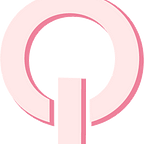In Conversation With: Liri Navon and Lee Bader
When the COVID-19 pandemic shook the world and sent millions of workers fumbling into the folds of remote work for the first time, Liri Navon and Lee Bader didn’t skip a beat. The two friends and colleagues had been remotely collaborating for over 7 years before meeting in person for the first time, just a few months ago.
They’d met through a Facebook creatives group, forging a friendship and professional relationship that has since birthed multiple projects, including Interwoven, a dramedy about two women on opposite ends of a suicide prevention hotline call, and Sketches from the Quarantine, a parody series showcasing the COVID-19 world through the lens of fictitious commercials, PSAs, and trailers. The former was selected as a finalist for a writing competition hosted by Blackpills, and is currently being translated into Hebrew with plans to submit it for development in Israel.
Although the two comprise an accomplished duo, Navon and Bader are also individual powerhouses in their own right. Navon is a writer, actress, and filmmaker trained at Second City Chicago. Her accomplishments include her pilot script, Cat Burglar, for which she achieved quarter-finalist status at the 2018 PAGE awards, as well as Barbie for Adults, a web series that revolves around Barbie dolls with no self-esteem. Premiering at The New Media Film Festival in Los Angeles, the series was an official selection at festivals around the world and part of an installation at DISJECTA Contemporary Art Center in Portland.
Bader is an Israeli-born actor-creator who received training in London and New York and graduated from the William Esper Studio. Having appeared on both television and film, her acting credits include Mable Miller: Female Serial Killer and Sofia. She has written and produced works like Shakespeare on the M, a series of Shakespearian monologues performed on the New York City subway, as well as Super Lady, an award-nominated short centered on a male director’s misguided attempt at gender equality. Super Lady was an official selection by the Grand Rapids Feminist Film Festival and WANDA: Feminism and Moving Image.
The pair knows all-too-well the experience of being acutely aware of their gender in filmmaker spaces. Bader recalls hiring a sound guy for a production she was directing, who would keep asking the male actor various technical questions. She found this bizarre, considering that she was the director and that actors are typically not the go-to for such concerns. Bader eventually called him out on it, telling him that if he had any questions, he should address her directly instead of bothering the on-screen talent.
In a similar vein, Navon highlights the overemphasis on women’s physical appearances, stating that feedback on her work from industry professionals often centers on her looks.
“They might say they liked it, but usually, they sum it up with ‘you look really pretty.’ This always leaves me pondering, ‘does my work even matter?’” Navon says.
Other issues that plague the industry are oversexualization of women on screen and, of course, as the #MeToo movement has shown us over the last few years, rampant sexual harassment and power imbalances between directors and actresses.
Navon and Bader point out that sexist and limited depictions of women are deeply-rooted in the film industry and are going to take some time to change. Thankfully, the tides are slowly turning; even though these issues are far from being fully resolved, many of them are finally receiving public attention. They refer to an Ocean’s 8 cast interview in which Cate Blanchett joked that the movie got its title because there are “only 8 women working in Hollywood.”
“That says it all, doesn’t it? At least now it’s out in the open,” they say. “And honestly, we’re so happy seeing more and more women taking the director’s chair as well as taking the initiative to openly discuss gender equality.”
Navon and Bader hope to continue the conversation and stress the importance of creating and supporting spaces dedicated to female-identifying filmmakers in an effort to “shift the still male-drenched narrative.”
It is with that aim in mind that they co-founded Bread Break Productions, a company dedicated to featuring bite-sized films by women.
“We want to put women at the forefront, and not see them once again in the same male configured boxes — ‘the mom’, ‘the girlfriend’, ‘the wife’, ‘the lover’, ‘the ingenue’, et cetera,” they say. “Our vision for the future is to help change the way women are portrayed on TV and film and have it be from a women’s authentic point of view, to create complex and unique characters that women can truly relate to.”
When asked what words of advice they’d give to women just starting out in the industry, they offer their mantra, a quote by Mark Duplass: “The cavalry is not coming.”
“We’re both great believers that if you want something, you have the power to get it,” they say. “If you come across misogyny of any kind, take power in the fact that you can create something yourself and attract like-minded people. They will come. Never give up on your vision, no matter what other people say. Cultivate your voice as a female artist and always be creating because the world needs to hear your voice.”
Stay up to date with Lee and Liri’s work on their Instagram @breadbreakproductions.
Follow us on Instagram @equalfooting
